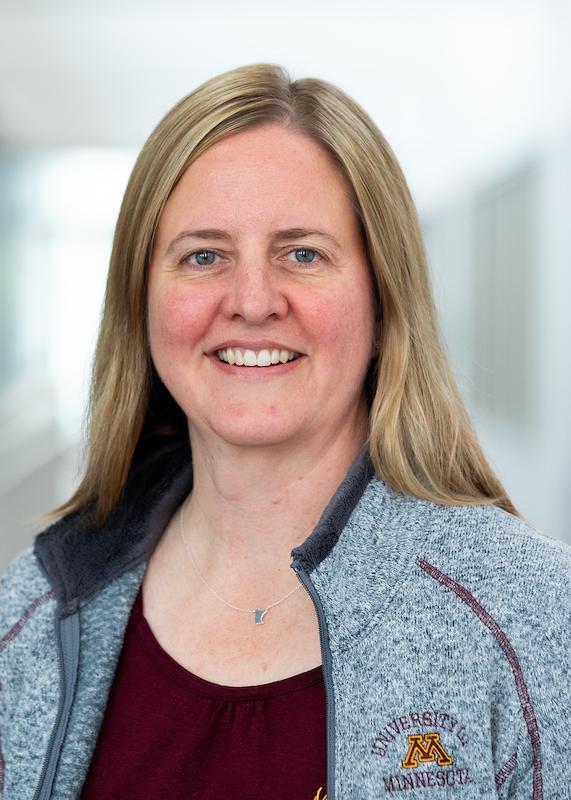Stacy Doepner-Hove
Education
- Master’s Degree 2009
Human Resources and Industrial Relations University of Minnesota Carlson School of Management - Juris Doctorate 1997
University of Minnesota Law School - Bachelor of Arts 1994
History University of Minnesota
About
Stacy Doepner-Hove is the Director of the Master of Human Resources and Industrial Relations program at the University of Minnesota’s Carlson School of Management. In this position, she is charged with overall program development and management for the master's degree. Stacy works closely with students and student groups, as well as faculty and staff, to build and enhance the program and the degree. She also teaches courses in the area of Leadership Development and Experiential Learning and serves on committees throughout the college and University. Prior to coming to the Carlson School, Stacy worked for the central Office of Human Resources and the Law School - both at the University of Minnesota. She is also an active member of Minnesota's non-profit community, serving on various boards and committees.
Recent speaking engagements and publications include:
Onboarding 2025
Various presentations at annual meetings from 2015-present
University of Kentucky Institute for Workplace Innovation: Innovative Employer Roundtable Meeting
Making the Onboarding Experience Personal and System-wide (May 15, 2014)
The Conference Board: Onboarding Talent Technology and Integration
Making the Onboarding Experience Personal and System-wide (December 5, 2013)
HR Tomorrow Conference - The Changing Face of HR: Navigating in the ‘New Normal’
A New NEO - 1400 New Employees, 90 Days, 2 Employees, 1 Big Change (April 16, 2010)
University of Minnesota Human Resources Research Institute – Spring Partner Meeting
Strategic Onboarding of Talent into New and Higher Level Positions and Why it Still Matters in this Tough Economy (May 28, 2009)
Creative Onboarding Programs – Doris Sims, editor
Onboarding Employees in a University Workplace (Book published in October 2010)
- Article details the process used to create an effective onboarding program, the program here at the University of Minnesota, and tips to duplicate the work in other organizations
Oxford Handbook of Socialization – Connie Wanberg, editor
The Development of a Comprehensive Onboarding Program at a Big Ten Research University (Spring 2012)
- The chapter outlined the University’s need for a stronger onboarding process, the strategy used to develop an improved process, the process that was developed, and how it is working.
Administrative Appointments
- Student Academic Integrity Committee (2022-present)
- Works with faculty and staff across the University to advise the executive vice president and provost and the administrative officers responsible for education, outreach, and sanctions related to issues of students academic integrity.
- Senate Committee on Educational Policy (2015-2022)
- Worked with faculty, staff, and students across the University to make recommendations concerning educational policy (e.g. grading, distance education, calendars, instruction, classrooms, etc.)
- Senate Committee on Committees Chair (2012-2015)
Member (2009-2015)- Worked with faculty, staff, and students across the University to make the best appointments and nominations to University Senate committees and advise on the committee structure of the University Senates.
Community Relationships
- League of Women Voters Minnesota President (2011-2015)
Voter Service Chair and Vice-President (1999-2007)
- Worked with the board and staff to lead the organization in its work to educate citizens on elections and voting, advocate on issues of importance, and reform government to work better for its people.
- Lead overall strategy of the organization and represents the organization to the public.
League of Women Voters Minnesota - P&A Senate Vice-Chair (2006-2008)
Chair of Representative and Governance Committee and Executive Committee Member (2005, 2012, 2013)
Representative (2003-2007, 2011-2015)
Senator to the University Senate (2005-2008, 2011-2015, 2021-present)
- Worked on governing documents to bring P&A and Civil Service bodies into the University Senate
- Helped lead the P&A Senate in its first year as a formal voice in the University Senate
- Worked with faculty, staff, and students across the University to build consensus on issues of concern
University of Minnesota Academic Professionals and Administrators Senate
Scholarly Service
- HRIR 6801: Experiential Learning Capstone has two main portions. The first is that we take a big topic in HR and discuss each night. Topics may include things like Ethics, Artificial Intelligence, International HR, etc. These discussion help to bring to light many of the most important topics of the day. The second portion of each class is a chance for students to collaborate with their classmates on live business cases from organizations around the Twin Cities, the nation, and the world. Students apply their related knowledge, concepts, and methods to a practical problem in human resources and industrial relations. Teams work together to provide evidence-based solutions for real world problems.
- HRIR 6305: Leadership Practicum is designed to allow for students to "practice" some of the things discussed and learned about in the curriculum. Students will dive into discussions, scenarios, and role plays for things like conflict management, cross-cultural agility, coaching managers, etc. The class topics shift to align with the students each semester and is a dynamic and engaging way to think how you may approach many actual issues and opportunities that you may face as an HR professional.
- IBUS 6404: Navigating Ambiguity in Global Business: VUCA Down Under is a course designed to have students dive headfirst into the most ambiguous questions facing businesses today. This is not a course where you will find the answer to complex business questions - there may not be concrete answers to some of these questions. Instead, it will be an active learning environment where we talk with and listen to organizational leaders to learn more about the complex issues they face, how our own ethical views play into these questions, and this through how we can adapt and adjust our strategies to fit with what we learn and how our organizations want to grow. The course wraps up with a two-week trip to Australia where we ask questions and discuss business with leaders in that country.
